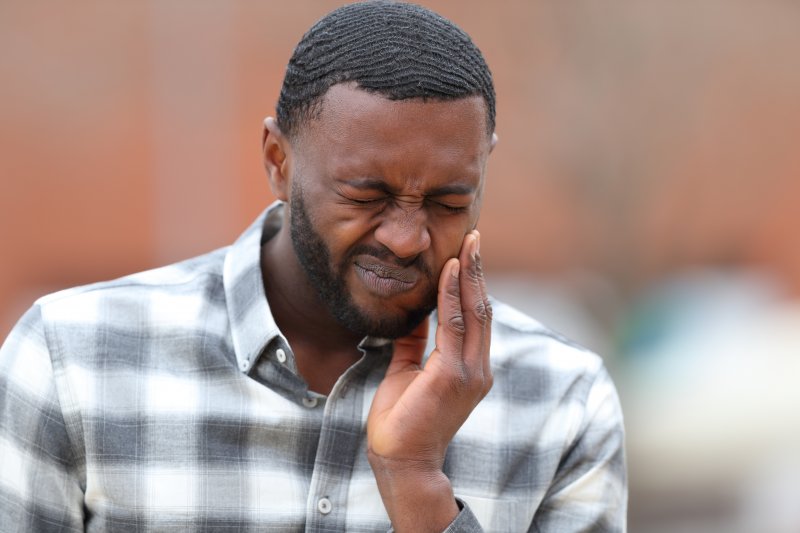
Tooth extractions are a last resort in your dentist’s arsenal of treatments. If a tooth has enough damage or decay to warrant an extraction, understand that it’s the only option. Though the procedure is painless, it will leave behind a small hole in your gums and jawbone called a socket. This must be protected through the healing process, or dry socket can occur.
But what is dry socket? Continue reading to learn more about this painful condition and what you can do to heal.
What Causes Dry Socket?
Blood clots are buildups of specialized red blood cells called platelets. These will stack up with each other over a wound to create a natural barrier that prevents infection. The clot is an important component of the healing process as it becomes a sort of biological scaffold for your body to bridge new tissues.
If this clot is damaged or dislodged, it leaves behind exposed bone and nerve endings. These are vulnerable to anything you put in your mouth and are especially susceptible to bacteria that cause infection.
How Long Does It Take for Sockets to Heal After Extraction?
Once your tooth is removed, your dentist will cover it in sterile gauze to help the clot form. From the time of extraction, it usually takes two to three weeks for the socket to fully heal. This number can vary based on lifestyle and diet factors.
If You Get Dry Socket, Should You Go to the Dentist?
The affliction must be handled by a trained professional as it is a complex and painful problem. Your dentist can provide an antibacterial paste to stop the pain and heal the extraction site.
Until your appointment, continue to gently rinse with salty water and carefully brush your teeth, avoiding the socket. Some over-the-counter pain medications like ibuprofen or acetaminophen can help, but may not be enough to dull the pain.
Dry socket is extremely painful and puts your gums and jawbone at risk of further damage. If you suspect that your blood clot has been dislodged, call your dentist. They can give you guidance on how to handle it until you can arrive at your appointment.
About the Practice
Dr. Shinwari is a highly skilled and passionate dentist who has been providing quality dental care for over 15 years. He is a board-certified oral surgeon who has been through some of the most rigorous training a dental professional can do. Dr. Shinwari dental education at the University of Peshawar in Pakistan before coming to the US as a researcher specializing in dental implantology. To schedule an appointment at Oral & Facial Surgery Center of Virginia, call (703) 574-4717 or visit the website to explore other services.

